Start a Poetry Club!
I love a good book club—online or in the living room. I also love the chance to do poetry with others in a Mischief Café. Starting a poetry club feels like the perfect combination of these experiences.
So, here are ten ideas for how to begin a poetry club (and keep it going). The ideas are arranged in order, with the first ones helping to lay the groundwork and the last ones working to help the club explore more deeply.
1. Start With the Familiar—A Memoir Book Club Selection
Your friends, co-workers, or students are already familiar with regular book clubs. Thus, to begin your poetry club, consider starting with familiar territory: a memoir with a tender story at its heart.
Our choice is The Joy of Poetry: How to Keep, Save & Make Your Life With Poems. It’s an engaging memoir that also begins building the foundation for “why poetry” and “how poetry.” Plus, it includes extras like :
• how to keep a poetry journal
• how to be a poetry buddy (with a friend)
• how to do a poetry dare (with a community)
Megan Willome’s The Joy of Poetry is not a long book, but it took me longer to read than I expected, because I kept stopping to savor poems and passages, to make note of books mentioned, and to compare Willome’s journey into poetry to my own. The book is many things. An unpretentious, funny, and poignant memoir. A defense of poetry, a response to literature that has touched her life….It’s also the story of a daughter who loses her mother to cancer. The author links these things into a narrative much like that of a novel. I loved this book. As soon as I finished, I began reading it again.”
—David Lee Garrison, author of Playing Bach in the D. C. Metro
2. Ease in With a Poetry Coloring Party
Many people don’t realize that poetry can be a low-key experience that doesn’t require any particular expertise to make a start. A great way to communicate this truth is to ease in with a coloring party. Use our free coloring page poems and our poets coloring book to kick off your party.
(We had so much fun creating our poetry coloring book that we couldn’t decide on the cover. So take your pick: Annabel Lee or Ode on a Grecian Urn.)
Download “Popular Poets” Coloring Book
________________________
3. Try Good Poetry Audio
Why try audio at the start?
First, audio is engaging and enjoyable when done well. It’s like hearing a story—you feel more free to just enjoy and not analyze, and that’s important for creating some baseline comfort in your new club.
Also, you’ll eventually want to be reading poems to each other during your poetry club. Listening to good poetry audio from the start will help you learn, in a fun and seamless way, how to read a poem aloud.
Try these, to begin:
• Laurie Klein, a reader for NPR member stations, reads themed poems (patron content)
• Major Jackson’s Slowdown podcast
And, for basic tips on reading poetry aloud, we suggest you consult this great article by Tania Runyan, author of How to Read a Poem: Based on the Billy Collins Poem “Introduction to Poetry”:
5 Great Tips for Reading Poetry Aloud
4. Speaking of How to Read a Poem, Make This Your Next Book Selection
To get everyone in your poetry club on the same page, so to speak, it can be helpful to use this fun, thoughtful, and totally accessible book as one of your early reading experiences.
Those who have more familiarity with reading poetry will enjoy the book’s engaging perspective and its built-in anthology. Those with less poetry-reading familiarity will get a gentle introduction to how poems work and how to approach discussing them.
The book also includes simple activities that your club can go through together, as you make your way through each of the vital topics that are covered.
How to Read a Poem: Based on the Billy Collins Poem “Introduction to Poetry”
While this book says it’s an invitation, it’s really much more. It’s a conversation—between you (lucky reader), Tania Runyan (funny, helpful friend) and these poems (brilliantly brought to the table by Runyan). No reader, experienced or new to reading poems, will want to miss this winsome and surprising way into the rich, wonderful conversations that poetry makes possible.”
—David Wright, Assistant Professor of English at Monmouth College, IL
5. Choose a Poetry Collection With a Theme
Now that you’ve got a good foundation for your club, you’ll want to start digging in with poetry collections and anthologies. These are organized in different ways. Some are simply collections of poems from a certain time period in a poet’s life (or a group of poet’s lives). Others are more theme based.
We suggest you begin with a theme-based collection, which can give a sense of cohesion for those who are newer to the poetry club experience. Here are a few ideas to get you started:
6. Memorize Poems (Or Parts of Poems) Together
As your group becomes more comfortable with poetry, you might want to try committing poetry together. You needn’t memorize whole poems. You could also just memorize certain stanzas you love. For a bit of fun, make certificates or badges to celebrate your memory accomplishments. Here’s a sample of one of ours, from a Prufrock challenge:
7. Create Poetry Collages
Consider reading just one poem for some of your club meetings, then spend the rest of your time together creating artistic responses to the poem. Collage can be an especially fun way to respond. Then you can also share the poetry club love on Instagram using the #poetrycollage hashtag.
8. Learn About Form Poetry
While it can be easier to launch your club by exploring modern poets who write in free verse, your club will also eventually find it enriching to learn about the broader world of poetry. Form poems are part of that world. Still, we recommend having a fun way in. To that, we offer humorous and informative poetry infographics you can use to begin your explorations. They include a little history, a little how-to, and some recommended poetry reading.
Check out all our infographics, here.
There’s also this super helpful guide on how to get started (and keep going) with writing form poems.
BUY ‘HOW TO WRITE A FORM POEM’ NOW!
9. Consider a Particular Poet
Some poets, like John Keats, have an interesting history. And, they even have fictional works that explore their history and their poems more fully.
To try this with Keats, begin here:
• a few good poems, history, and short fiction
• an engaging novel, Adjustments
• the movie Bright Star
10. Stay Poetic Even When You’re Not Meeting, With a Daily Poem Delivery
Finding the best in poetry isn’t always easy, but it’s always rewarding. To help you out, we offer a daily inbox poem delivery (paired with a beautiful, meditative photo). We do the hard work of curating the best in poetry, so you can use your precious time to simply enjoy the poems.
You can use Every Day Poems to plan content for your clubs. Or you can extend your club friendships and stay poetic with along with someone else, by being poetry buddies for a time. Learn more about one poetry buddy partnership, here.
Photo by Sonja and Jens, Creative Commons, via Flickr. Post by L.L. Barkat.
- Poetry Prompt: In the Wild Secret Place - January 6, 2025
- Journeys: What We Hold in Common - November 4, 2024
- Poetry Prompt: My Poem is an Oasis - August 26, 2024
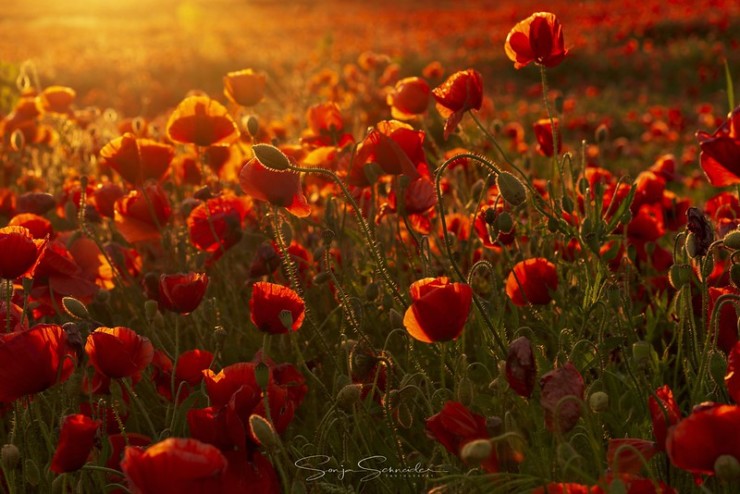
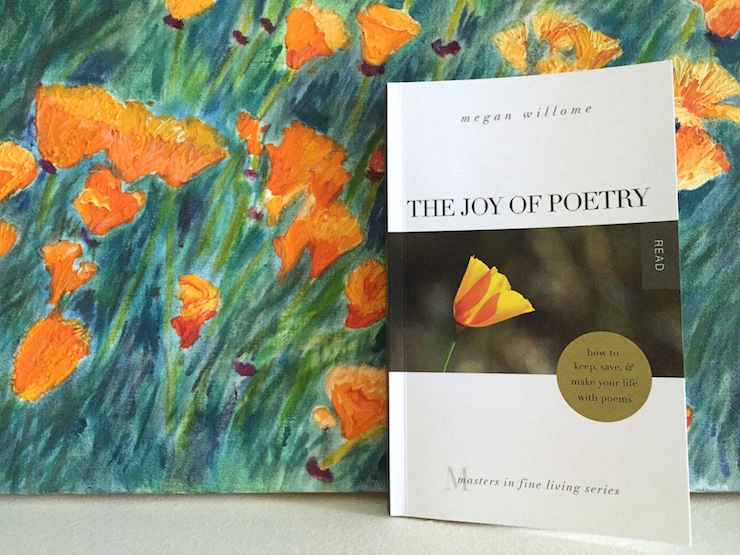
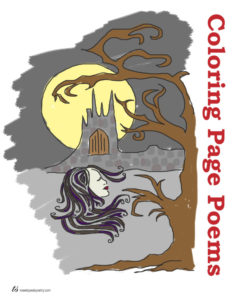
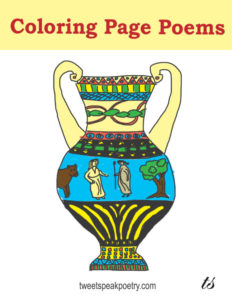
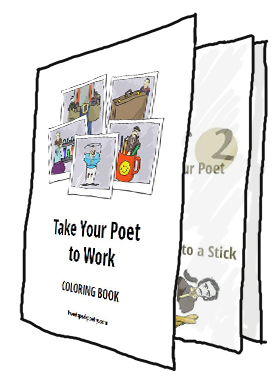
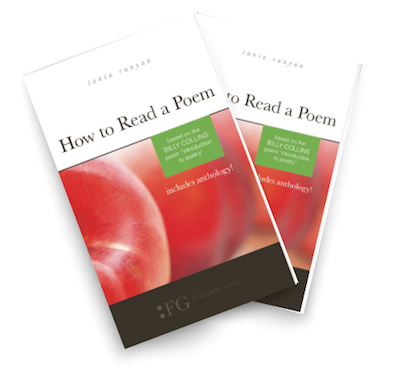
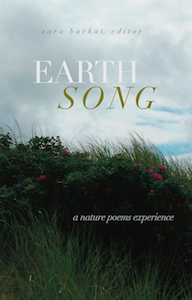
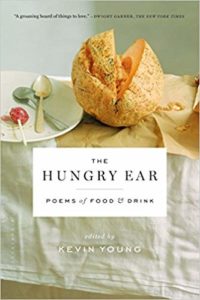
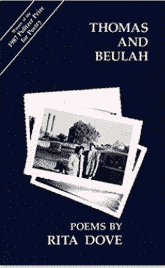
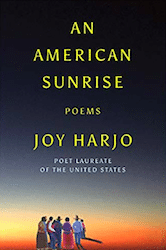
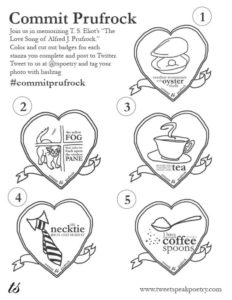
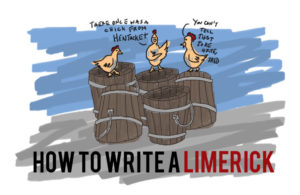
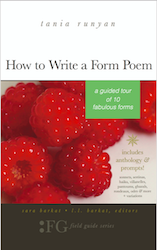
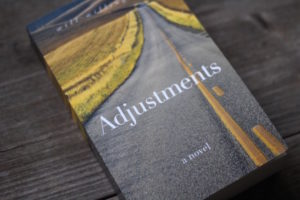

Bethany R. says
How fun is this?!
L.L. Barkat says
If you start one, even one for a season, we’d love to hear about it. 🙂
Laura Lynn Brown says
I love “The Hungry Ear” and “Thomas and Beulah” — both full of engaging poems, each an example of one smart way to arrange a collection (whether one author’s work or an anthology). One a buffet of many different poetic voices, one a long, slow, simmering dish from one poet-cook.
L.L. Barkat says
I might need to get The Hungry Ear from the library again for this NPM, especially since the topic of the 30-day challenge is food.
(So many delectable poems in the world. So little time. 🙂 )
Bethany Rohde says
Just looked up your recommendations here, Laura. Intriguing. Thanks for sharing them.
L.L. Barkat says
I’ll be curious to know which ones you end up pursuing a little 🙂 Thanks for reading! 🙂
Maxwell Joy Moore says
I started a group called “Writing on T”, and its for Black trans and gender diverse people on testosterone. It’s been a great 3 meetings so far.
L.L. Barkat says
Maxwell, that’s great news. Is it a poetry writing group? 🙂